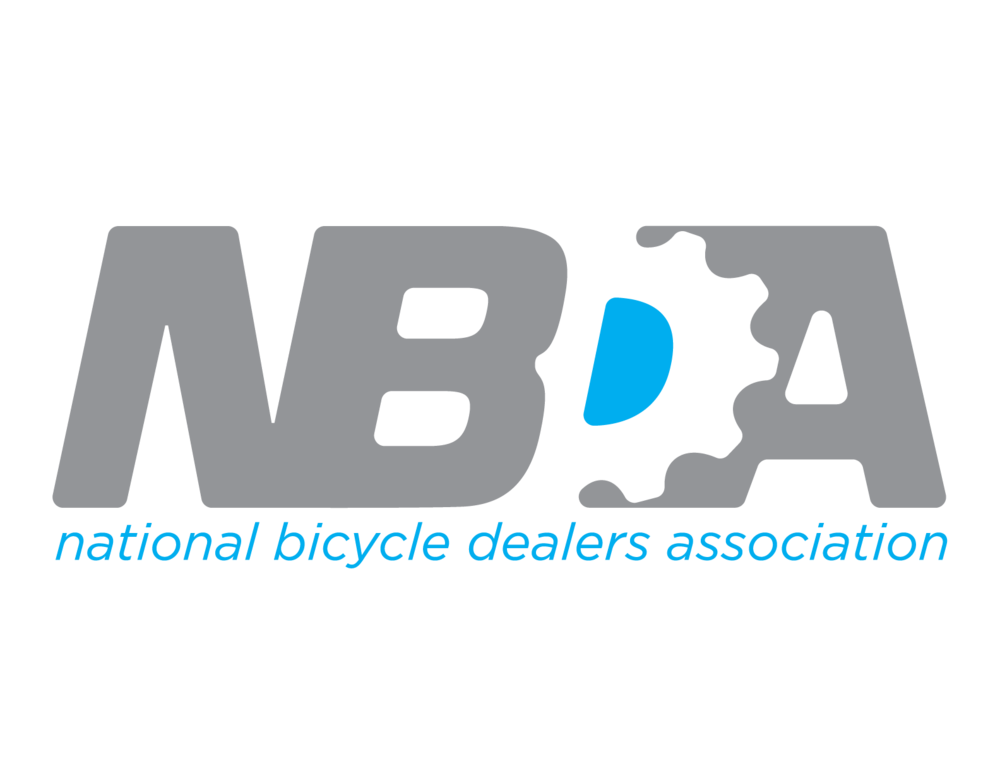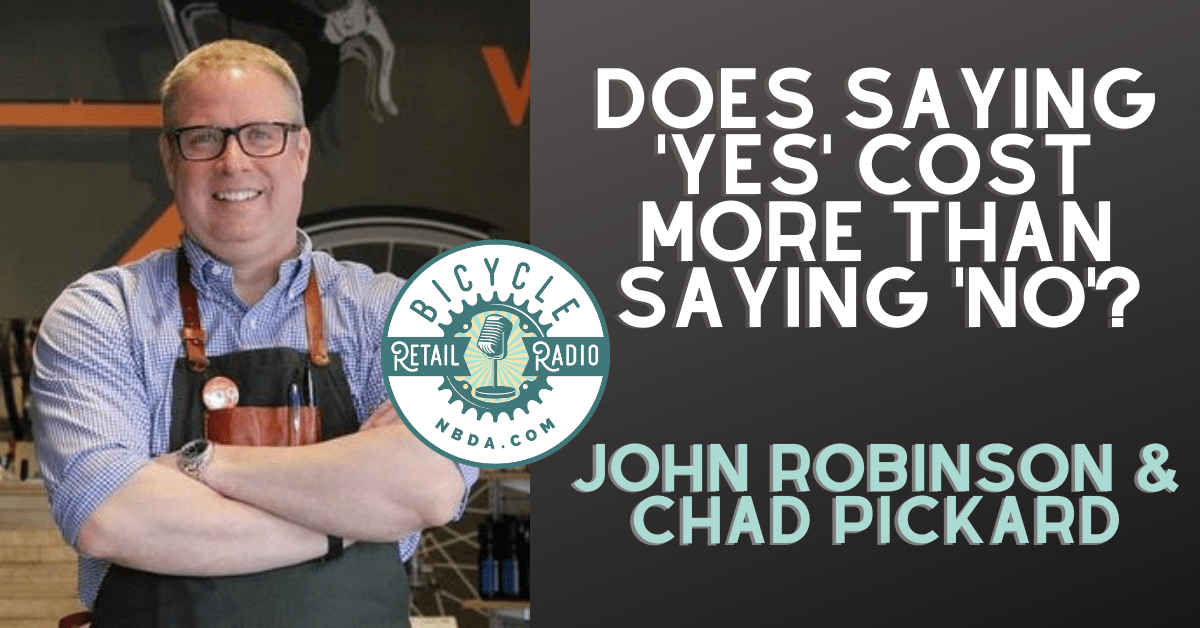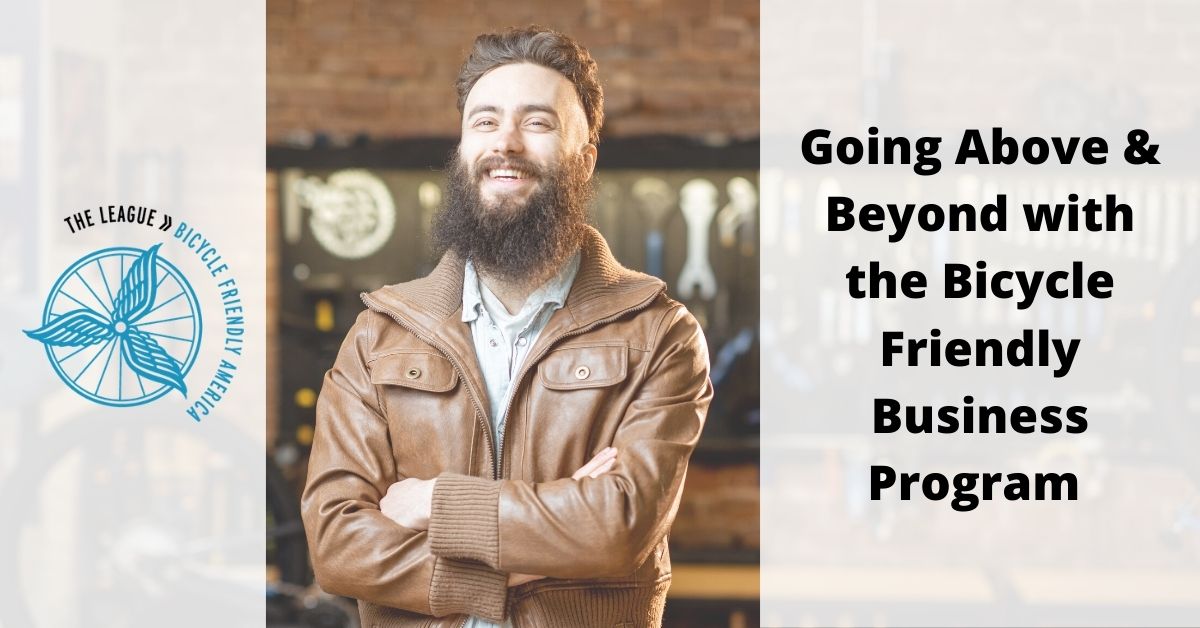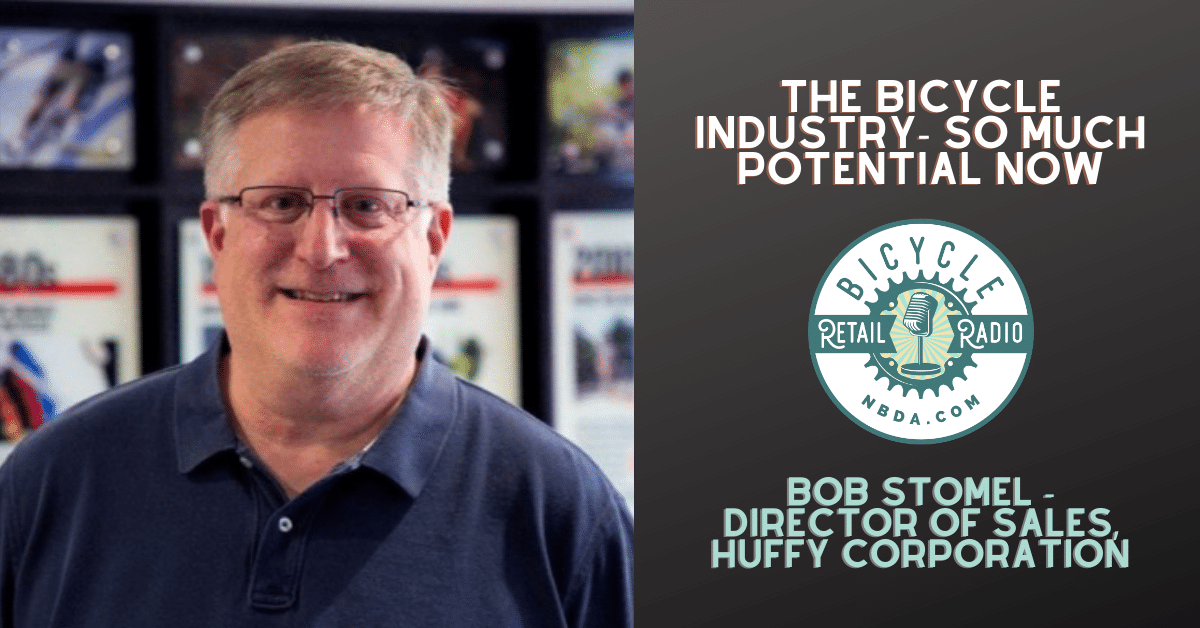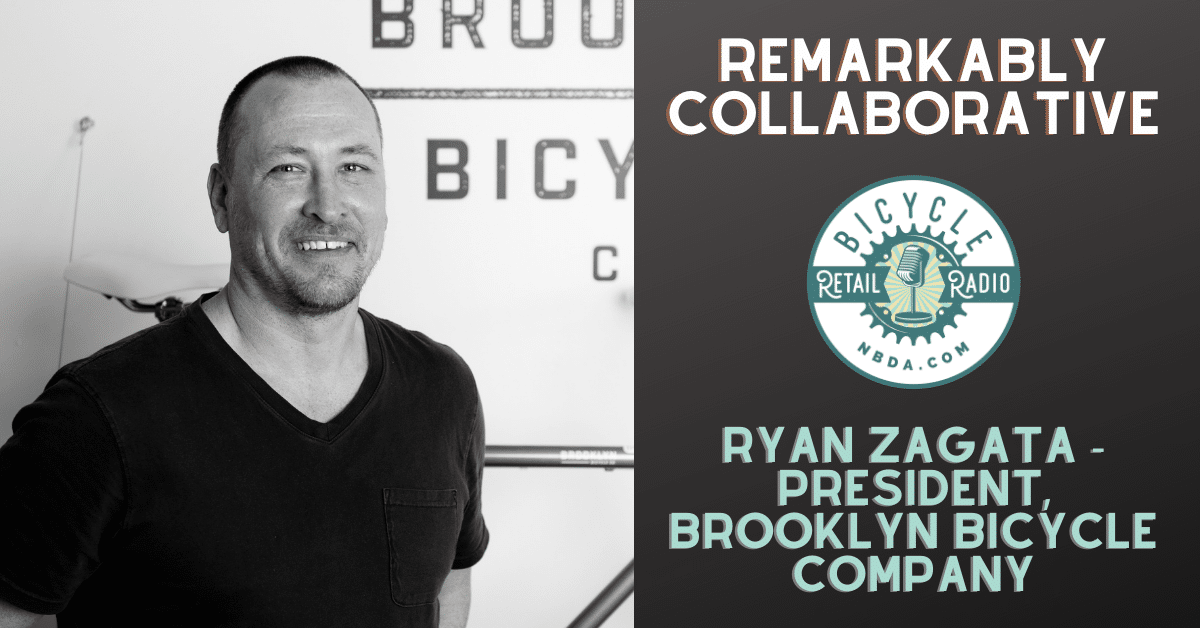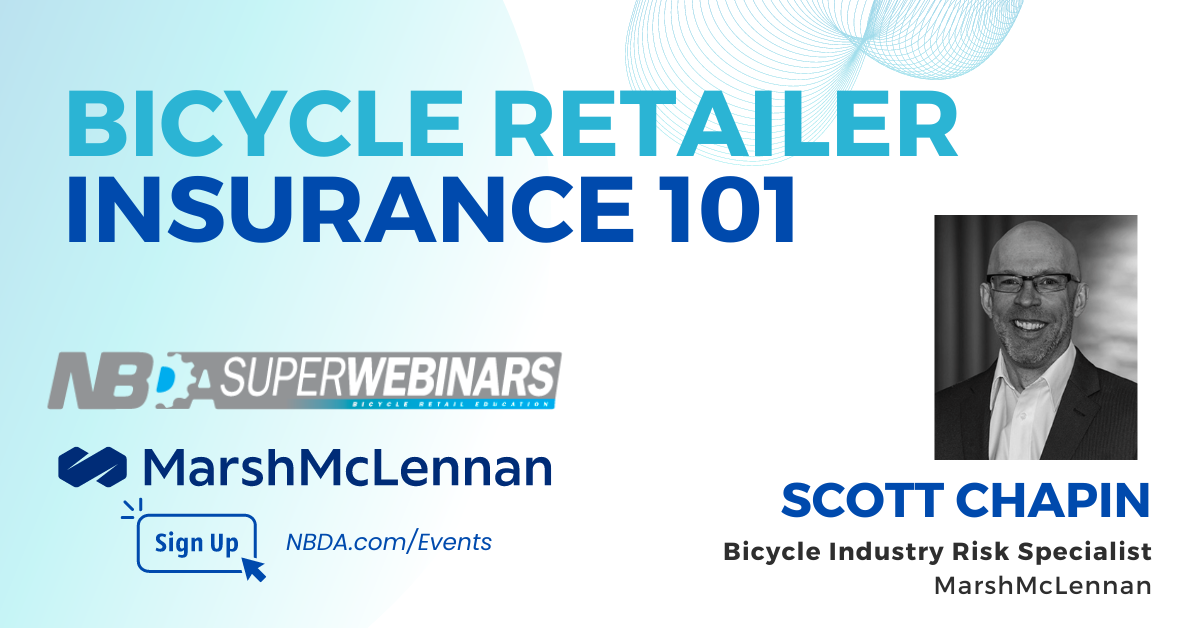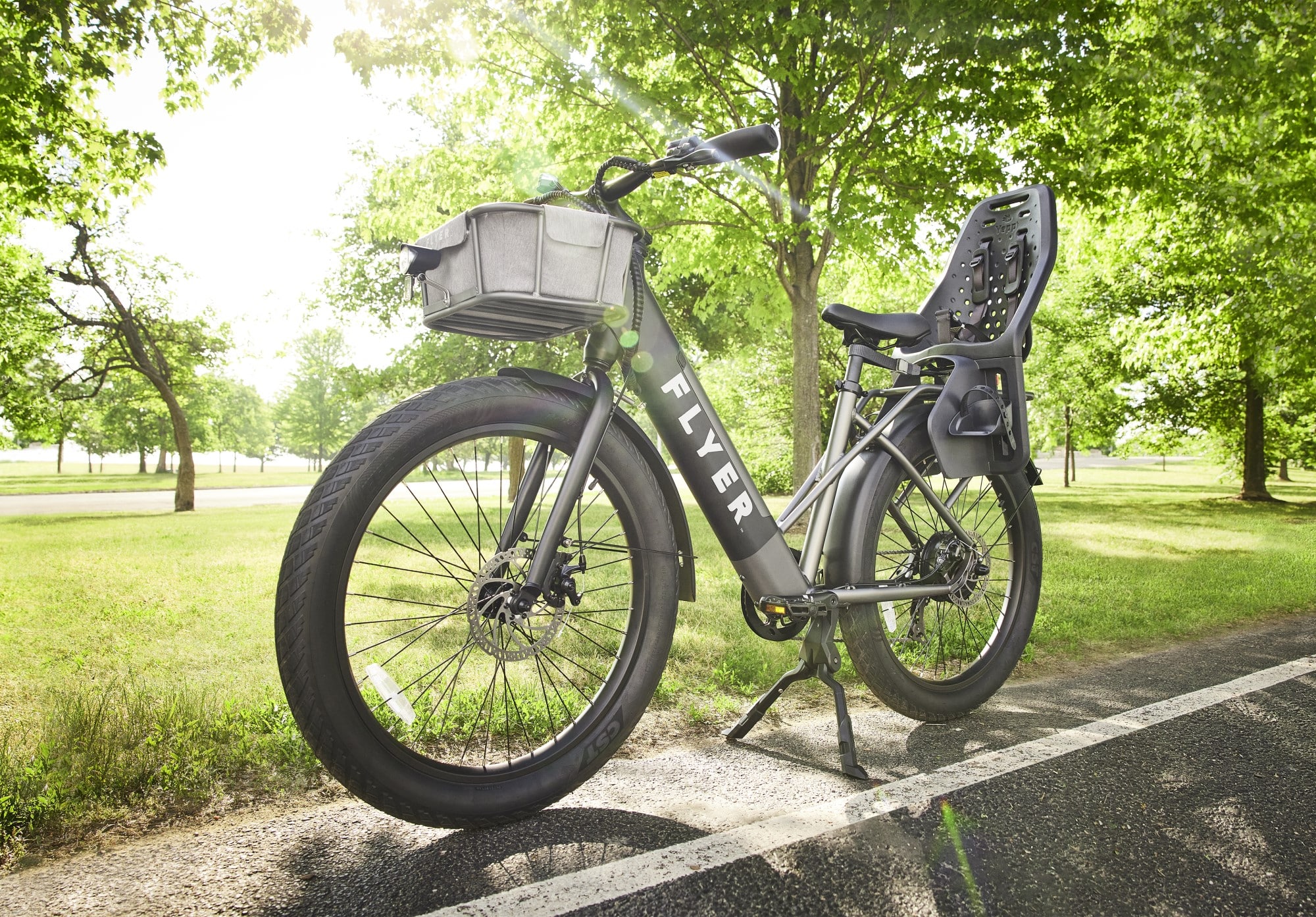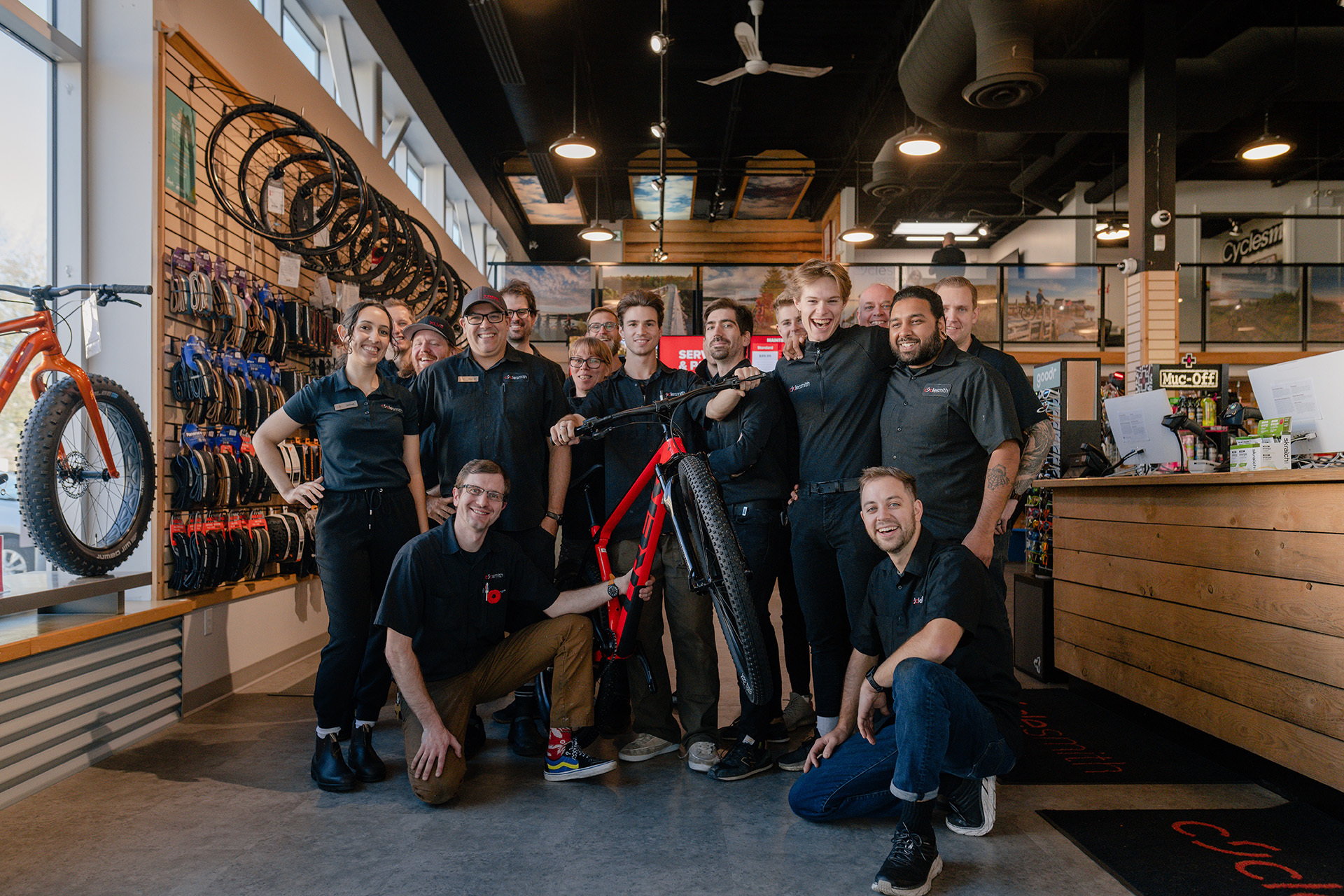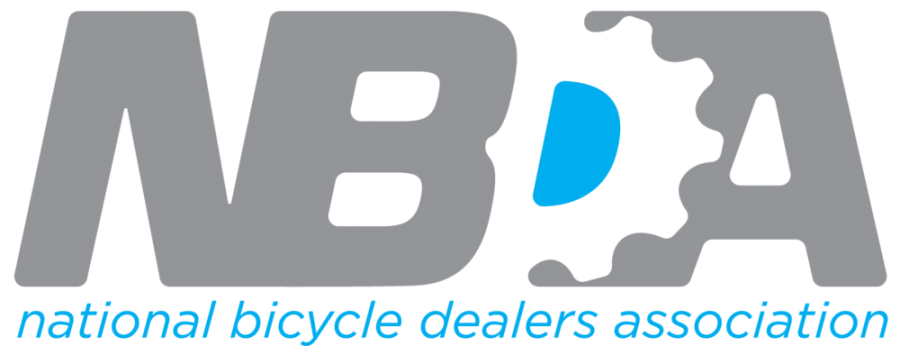Does Saying ‘Yes’ Cost More than Saying ‘No’?
[fusion_builder_container hundred_percent=”no” equal_height_columns=”no” menu_anchor=”” hide_on_mobile=”small-visibility,medium-visibility,large-visibility” class=”” id=”” background_color=”” background_image=”” background_position=”center center” background_repeat=”no-repeat” fade=”no” background_parallax=”none” parallax_speed=”0.3″ video_mp4=”” video_webm=”” video_ogv=”” video_url=”” video_aspect_ratio=”16:9″ video_loop=”yes” video_mute=”yes” overlay_color=”” video_preview_image=”” border_color=”” border_style=”solid” padding_top=”” padding_bottom=”” padding_left=”” padding_right=”” type=”legacy”][fusion_builder_row][fusion_builder_column type=”1_1″ layout=”1_1″ background_position=”left top” background_color=”” border_color=”” border_style=”solid” border_position=”all” spacing=”yes” background_image=”” background_repeat=”no-repeat” padding_top=”” padding_right=”” padding_bottom=”” padding_left=”” margin_top=”0px” margin_bottom=”0px” class=”” id=”” animation_type=”” animation_speed=”0.3″ animation_direction=”left” hide_on_mobile=”small-visibility,medium-visibility,large-visibility” center_content=”no” last=”true” min_height=”” hover_type=”none” link=”” border_sizes_top=”” border_sizes_bottom=”” border_sizes_left=”” border_sizes_right=”” first=”true” type=”1_1″][fusion_text columns=”” column_min_width=”” column_spacing=”” rule_style=”default” rule_size=”” rule_color=”” content_alignment_medium=”” content_alignment_small=”” content_alignment=”center” hide_on_mobile=”small-visibility,medium-visibility,large-visibility” sticky_display=”normal,sticky” class=”” id=”” font_size=”” fusion_font_family_text_font=”” fusion_font_variant_text_font=”” line_height=”” letter_spacing=”” text_color=”” animation_type=”” animation_direction=”left” animation_speed=”0.3″ animation_offset=””]

[/fusion_text][/fusion_builder_column][/fusion_builder_row][/fusion_builder_container][fusion_builder_container type=”flex” hundred_percent=”no” hundred_percent_height=”no” min_height=”” hundred_percent_height_scroll=”no” align_content=”stretch” flex_align_items=”flex-start” flex_justify_content=”flex-start” flex_column_spacing=”” hundred_percent_height_center_content=”yes” equal_height_columns=”no” container_tag=”div” menu_anchor=”” hide_on_mobile=”small-visibility,medium-visibility,large-visibility” status=”published” publish_date=”” class=”” id=”” link_color=”” link_hover_color=”” border_sizes=”” border_sizes_top=”” border_sizes_right=”” border_sizes_bottom=”” border_sizes_left=”” border_color=”” border_style=”solid” spacing_medium=”” margin_top_medium=”” margin_bottom_medium=”” spacing_small=”” margin_top_small=”” margin_bottom_small=”” margin_top=”” margin_bottom=”” padding_dimensions_medium=”” padding_top_medium=”” padding_right_medium=”” padding_bottom_medium=”” padding_left_medium=”” padding_dimensions_small=”” padding_top_small=”” padding_right_small=”” padding_bottom_small=”” padding_left_small=”” padding_top=”” padding_right=”” padding_bottom=”” padding_left=”” box_shadow=”no” box_shadow_vertical=”” box_shadow_horizontal=”” box_shadow_blur=”0″ box_shadow_spread=”0″ box_shadow_color=”” box_shadow_style=”” z_index=”” overflow=”” gradient_start_color=”” gradient_end_color=”” gradient_start_position=”0″ gradient_end_position=”100″ gradient_type=”linear” radial_direction=”center center” linear_angle=”180″ background_color=”” background_image=”” background_position=”center center” background_repeat=”no-repeat” fade=”no” background_parallax=”none” enable_mobile=”no” parallax_speed=”0.3″ background_blend_mode=”none” video_mp4=”” video_webm=”” video_ogv=”” video_url=”” video_aspect_ratio=”16:9″ video_loop=”yes” video_mute=”yes” video_preview_image=”” absolute=”off” absolute_devices=”small,medium,large” sticky=”off” sticky_devices=”small-visibility,medium-visibility,large-visibility” sticky_background_color=”” sticky_height=”” sticky_offset=”” sticky_transition_offset=”0″ scroll_offset=”0″ animation_type=”” animation_direction=”left” animation_speed=”0.3″ animation_offset=”” filter_hue=”0″ filter_saturation=”100″ filter_brightness=”100″ filter_contrast=”100″ filter_invert=”0″ filter_sepia=”0″ filter_opacity=”100″ filter_blur=”0″ filter_hue_hover=”0″ filter_saturation_hover=”100″ filter_brightness_hover=”100″ filter_contrast_hover=”100″ filter_invert_hover=”0″ filter_sepia_hover=”0″ filter_opacity_hover=”100″ filter_blur_hover=”0″][fusion_builder_row][fusion_builder_column type=”1_1″ layout=”1_1″ align_self=”auto” content_layout=”column” align_content=”flex-start” content_wrap=”wrap” spacing=”” center_content=”no” link=”” target=”_self” min_height=”” hide_on_mobile=”small-visibility,medium-visibility,large-visibility” sticky_display=”normal,sticky” class=”” id=”” type_medium=”” type_small=”” order_medium=”0″ order_small=”0″ dimension_spacing_medium=”” dimension_spacing_small=”” dimension_spacing=”” dimension_margin_medium=”” dimension_margin_small=”” margin_top=”” margin_bottom=”” padding_medium=”” padding_small=”” padding_top=”” padding_right=”” padding_bottom=”” padding_left=”” hover_type=”none” border_sizes=”” border_color=”” border_style=”solid” border_radius=”” box_shadow=”no” dimension_box_shadow=”” box_shadow_blur=”0″ box_shadow_spread=”0″ box_shadow_color=”” box_shadow_style=”” background_type=”single” gradient_start_color=”” gradient_end_color=”” gradient_start_position=”0″ gradient_end_position=”100″ gradient_type=”linear” radial_direction=”center center” linear_angle=”180″ background_color=”” background_image=”” background_image_id=”” background_position=”left top” background_repeat=”no-repeat” background_blend_mode=”none” animation_type=”” animation_direction=”left” animation_speed=”0.3″ animation_offset=”” filter_type=”regular” filter_hue=”0″ filter_saturation=”100″ filter_brightness=”100″ filter_contrast=”100″ filter_invert=”0″ filter_sepia=”0″ filter_opacity=”100″ filter_blur=”0″ filter_hue_hover=”0″ filter_saturation_hover=”100″ filter_brightness_hover=”100″ filter_contrast_hover=”100″ filter_invert_hover=”0″ filter_sepia_hover=”0″ filter_opacity_hover=”100″ filter_blur_hover=”0″ last=”true” border_position=”all” first=”true” type=”1_1″][fusion_code]PGRpdiBpZD0iYnV6enNwcm91dC1wbGF5ZXItNTA2NTYzMSI+PC9kaXY+CjxzY3JpcHQgc3JjPSJodHRwczovL3d3dy5idXp6c3Byb3V0LmNvbS80OTYwOTMvNTA2NTYzMS1kb2VzLXNheWluZy15ZXMtY29zdC1tb3JlLXRoYW4tc2F5aW5nLW5vLmpzP2NvbnRhaW5lcl9pZD1idXp6c3Byb3V0LXBsYXllci01MDY1NjMxJnBsYXllcj1zbWFsbCIgdHlwZT0idGV4dC9qYXZhc2NyaXB0IiBjaGFyc2V0PSJ1dGYtOCI+PC9zY3JpcHQ+[/fusion_code][/fusion_builder_column][/fusion_builder_row][/fusion_builder_container][fusion_builder_container type=”flex” hundred_percent=”no” hundred_percent_height=”no” min_height=”” hundred_percent_height_scroll=”no” align_content=”stretch” flex_align_items=”flex-start” flex_justify_content=”flex-start” flex_column_spacing=”” hundred_percent_height_center_content=”yes” equal_height_columns=”no” container_tag=”div” menu_anchor=”” hide_on_mobile=”small-visibility,medium-visibility,large-visibility” status=”published” publish_date=”” class=”” id=”” link_color=”” link_hover_color=”” border_sizes=”” border_sizes_top=”” border_sizes_right=”” border_sizes_bottom=”” border_sizes_left=”” border_color=”” border_style=”solid” spacing_medium=”” margin_top_medium=”” margin_bottom_medium=”” spacing_small=”” margin_top_small=”” margin_bottom_small=”” margin_top=”” margin_bottom=”” padding_dimensions_medium=”” padding_top_medium=”” padding_right_medium=”” padding_bottom_medium=”” padding_left_medium=”” padding_dimensions_small=”” padding_top_small=”” padding_right_small=”” padding_bottom_small=”” padding_left_small=”” padding_top=”” padding_right=”” padding_bottom=”” padding_left=”” box_shadow=”no” box_shadow_vertical=”” box_shadow_horizontal=”” box_shadow_blur=”0″ box_shadow_spread=”0″ box_shadow_color=”” box_shadow_style=”” z_index=”” overflow=”” gradient_start_color=”” gradient_end_color=”” gradient_start_position=”0″ gradient_end_position=”100″ gradient_type=”linear” radial_direction=”center center” linear_angle=”180″ background_color=”” background_image=”” background_position=”center center” background_repeat=”no-repeat” fade=”no” background_parallax=”none” enable_mobile=”no” parallax_speed=”0.3″ background_blend_mode=”none” video_mp4=”” video_webm=”” video_ogv=”” video_url=”” video_aspect_ratio=”16:9″ video_loop=”yes” video_mute=”yes” video_preview_image=”” absolute=”off” absolute_devices=”small,medium,large” sticky=”off” sticky_devices=”small-visibility,medium-visibility,large-visibility” sticky_background_color=”” sticky_height=”” sticky_offset=”” sticky_transition_offset=”0″ scroll_offset=”0″ animation_type=”” animation_direction=”left” animation_speed=”0.3″ animation_offset=”” filter_hue=”0″ filter_saturation=”100″ filter_brightness=”100″ filter_contrast=”100″ filter_invert=”0″ filter_sepia=”0″ filter_opacity=”100″ filter_blur=”0″ filter_hue_hover=”0″ filter_saturation_hover=”100″ filter_brightness_hover=”100″ filter_contrast_hover=”100″ filter_invert_hover=”0″ filter_sepia_hover=”0″ filter_opacity_hover=”100″ filter_blur_hover=”0″][fusion_builder_row][fusion_builder_column type=”1_1″ layout=”1_1″ align_self=”auto” content_layout=”column” align_content=”flex-start” content_wrap=”wrap” spacing=”” center_content=”no” link=”” target=”_self” min_height=”” hide_on_mobile=”small-visibility,medium-visibility,large-visibility” sticky_display=”normal,sticky” class=”” id=”” type_medium=”” type_small=”” order_medium=”0″ order_small=”0″ dimension_spacing_medium=”” dimension_spacing_small=”” dimension_spacing=”” dimension_margin_medium=”” dimension_margin_small=”” margin_top=”” margin_bottom=”” padding_medium=”” padding_small=”” padding_top=”” padding_right=”” padding_bottom=”” padding_left=”” hover_type=”none” border_sizes=”” border_color=”” border_style=”solid” border_radius=”” box_shadow=”no” dimension_box_shadow=”” box_shadow_blur=”0″ box_shadow_spread=”0″ box_shadow_color=”” box_shadow_style=”” background_type=”single” gradient_start_color=”” gradient_end_color=”” gradient_start_position=”0″ gradient_end_position=”100″ gradient_type=”linear” radial_direction=”center center” linear_angle=”180″ background_color=”” background_image=”” background_image_id=”” background_position=”left top” background_repeat=”no-repeat” background_blend_mode=”none” animation_type=”” animation_direction=”left” animation_speed=”0.3″ animation_offset=”” filter_type=”regular” filter_hue=”0″ filter_saturation=”100″ filter_brightness=”100″ filter_contrast=”100″ filter_invert=”0″ filter_sepia=”0″ filter_opacity=”100″ filter_blur=”0″ filter_hue_hover=”0″ filter_saturation_hover=”100″ filter_brightness_hover=”100″ filter_contrast_hover=”100″ filter_invert_hover=”0″ filter_sepia_hover=”0″ filter_opacity_hover=”100″ filter_blur_hover=”0″ last=”true” border_position=”all” first=”true” type=”1_1″][fusion_text columns=”” column_min_width=”” column_spacing=”” rule_style=”default” rule_size=”” rule_color=”” content_alignment_medium=”” content_alignment_small=”” content_alignment=”” hide_on_mobile=”small-visibility,medium-visibility,large-visibility” sticky_display=”normal,sticky” class=”” id=”” font_size=”” fusion_font_family_text_font=”” fusion_font_variant_text_font=”” line_height=”” letter_spacing=”” text_color=”” animation_type=”” animation_direction=”left” animation_speed=”0.3″ animation_offset=””]
This week, Chad Pickard, NBDA Board Member and owner of Spoke-N-Sport in Sioux Falls, SD, is joined by John Robinson, fellow NBDA Board Member and owner of Johnny Velo Bikes in Columbus, OH, for a discussion on customers and profitability. Is the customer always right? Does saying “yes” to a customer sometimes cost more than saying “no”? Join in on the discussion and feel free to weigh in on social media!
[/fusion_text][/fusion_builder_column][/fusion_builder_row][/fusion_builder_container][fusion_builder_container type=”flex” hundred_percent=”no” hundred_percent_height=”no” min_height=”” hundred_percent_height_scroll=”no” align_content=”stretch” flex_align_items=”flex-start” flex_justify_content=”flex-start” flex_column_spacing=”” hundred_percent_height_center_content=”yes” equal_height_columns=”no” container_tag=”div” menu_anchor=”” hide_on_mobile=”small-visibility,medium-visibility,large-visibility” status=”published” publish_date=”” class=”” id=”” link_color=”” link_hover_color=”” border_sizes=”” border_sizes_top=”” border_sizes_right=”” border_sizes_bottom=”” border_sizes_left=”” border_color=”” border_style=”solid” spacing_medium=”” margin_top_medium=”” margin_bottom_medium=”” spacing_small=”” margin_top_small=”” margin_bottom_small=”” margin_top=”” margin_bottom=”” padding_dimensions_medium=”” padding_top_medium=”” padding_right_medium=”” padding_bottom_medium=”” padding_left_medium=”” padding_dimensions_small=”” padding_top_small=”” padding_right_small=”” padding_bottom_small=”” padding_left_small=”” padding_top=”” padding_right=”” padding_bottom=”” padding_left=”” box_shadow=”no” box_shadow_vertical=”” box_shadow_horizontal=”” box_shadow_blur=”0″ box_shadow_spread=”0″ box_shadow_color=”” box_shadow_style=”” z_index=”” overflow=”” gradient_start_color=”” gradient_end_color=”” gradient_start_position=”0″ gradient_end_position=”100″ gradient_type=”linear” radial_direction=”center center” linear_angle=”180″ background_color=”” background_image=”” background_position=”center center” background_repeat=”no-repeat” fade=”no” background_parallax=”none” enable_mobile=”no” parallax_speed=”0.3″ background_blend_mode=”none” video_mp4=”” video_webm=”” video_ogv=”” video_url=”” video_aspect_ratio=”16:9″ video_loop=”yes” video_mute=”yes” video_preview_image=”” absolute=”off” absolute_devices=”small,medium,large” sticky=”off” sticky_devices=”small-visibility,medium-visibility,large-visibility” sticky_background_color=”” sticky_height=”” sticky_offset=”” sticky_transition_offset=”0″ scroll_offset=”0″ animation_type=”” animation_direction=”left” animation_speed=”0.3″ animation_offset=”” filter_hue=”0″ filter_saturation=”100″ filter_brightness=”100″ filter_contrast=”100″ filter_invert=”0″ filter_sepia=”0″ filter_opacity=”100″ filter_blur=”0″ filter_hue_hover=”0″ filter_saturation_hover=”100″ filter_brightness_hover=”100″ filter_contrast_hover=”100″ filter_invert_hover=”0″ filter_sepia_hover=”0″ filter_opacity_hover=”100″ filter_blur_hover=”0″][fusion_builder_row][fusion_builder_column type=”1_1″ layout=”1_1″ align_self=”auto” content_layout=”column” align_content=”flex-start” content_wrap=”wrap” spacing=”” center_content=”no” link=”” target=”_self” min_height=”” hide_on_mobile=”small-visibility,medium-visibility,large-visibility” sticky_display=”normal,sticky” class=”” id=”” type_medium=”” type_small=”” order_medium=”0″ order_small=”0″ dimension_spacing_medium=”” dimension_spacing_small=”” dimension_spacing=”” dimension_margin_medium=”” dimension_margin_small=”” margin_top=”” margin_bottom=”” padding_medium=”” padding_small=”” padding_top=”” padding_right=”” padding_bottom=”” padding_left=”” hover_type=”none” border_sizes=”” border_color=”” border_style=”solid” border_radius=”” box_shadow=”no” dimension_box_shadow=”” box_shadow_blur=”0″ box_shadow_spread=”0″ box_shadow_color=”” box_shadow_style=”” background_type=”single” gradient_start_color=”” gradient_end_color=”” gradient_start_position=”0″ gradient_end_position=”100″ gradient_type=”linear” radial_direction=”center center” linear_angle=”180″ background_color=”” background_image=”” background_image_id=”” background_position=”left top” background_repeat=”no-repeat” background_blend_mode=”none” animation_type=”” animation_direction=”left” animation_speed=”0.3″ animation_offset=”” filter_type=”regular” filter_hue=”0″ filter_saturation=”100″ filter_brightness=”100″ filter_contrast=”100″ filter_invert=”0″ filter_sepia=”0″ filter_opacity=”100″ filter_blur=”0″ filter_hue_hover=”0″ filter_saturation_hover=”100″ filter_brightness_hover=”100″ filter_contrast_hover=”100″ filter_invert_hover=”0″ filter_sepia_hover=”0″ filter_opacity_hover=”100″ filter_blur_hover=”0″ last=”true” border_position=”all” first=”true” type=”1_1″][fusion_accordion type=”” boxed_mode=”” border_size=”1″ border_color=”” background_color=”” hover_color=”” divider_line=”” title_font_size=”20px” icon_size=”16″ icon_color=”” icon_boxed_mode=”” icon_box_color=”” icon_alignment=”” toggle_hover_accent_color=”” hide_on_mobile=”small-visibility,medium-visibility,large-visibility” class=”” id=””][fusion_toggle title=”Episode Transcription” open=”no” class=”” id=””]
SUMMARY KEYWORDS
bike, customer, bike shop, shop, service, helmets, buy, industry, discount, store, part, product, tires, manufacturer, people, sell, margin, order, money, staff
SPEAKERS
John Robinson, Rod Judd, Tara Kuipers, Chad Pickard, Kent Cranford
Rod Judd 00:10
You are listening to bicycle retail radio brought to you by the National Bicycle Dealers Association.
Chad Pickard 00:16
Good afternoon and welcome to NBDAs bicycle retailer radio. I am Chad Picard. I own a couple of bike stores in South Dakota and serve on the NBDA board. Today we’re going to be talking to john Robertson of Johnny Vela bikes in Columbus, Ohio. And we’re going to talk about saying yes and saying no to customers and what that means down the road. Good afternoon, John. How are you doing?
John Robinson 00:37
I’m doing great, Chad. Thanks for having me.
Chad Pickard 00:40
My pleasure. Today we’re gonna talk about saying yes and saying no, we all have lots of customers coming in our stores and some are, you know, sponsored riders, some are ambassadors Some are just shopping prices, and I’m guessing that’s something that happens in your store.
John Robinson 00:55
It does. And actually Chad kind of got me started on this topic was I was trolling the interwebs and came across a forum where someone had posed a question about a customer experience, and should they do the work or not? And one of the comments that was on that thread, and I wish I knew, and I could credit the person that said it, but they said sometimes saying yes, cost more than saying no. And that really resonated with me as a bike shop owner, because I’ve gotten myself into that situation sometimes where I want to please that customer, and I don’t want to lose the money from that deal. And so I’m going to go ahead and say yes, and it’s come back to bite me a couple times. And so that’s kind of the one portion of the segment that I kind of wanted to talk about is how that affects me as a shop owner, but then kind of a second or later on in this segment. I’d like to talk a little bit about we as an industry, what we should be doing and saying no in some circumstances
Chad Pickard 02:00
Okay, so the customer’s always right. I mean, that’s, I think what we’ve been taught. What you’re telling me is that is that is not the truth. Give me an example of so our listeners can understand a little bit more about the details.
John Robinson 02:13
Sure, I’d be more than happy to, you know, actually, one of the things that came up was we had a situation where he we had actually a minister at a prominent church here in Columbus, Ohio, came in with his felt roadbike and my service manager wanting to help him out and do a tune up with the bike and fix some of the other things went ahead and accepted it in. I see it on the stand after the customer’s very left and I look at I’m like, What is going on here? The guy had basically taken JB weld, and JB welded his chainstay back together, it was quite obvious it had been broken. But my service manager was of the mindset and everything else that we want to do what’s right for the customer and help them out and get them Back on his bike, that’s a perfect example of sometimes saying yes could cost you more than say, No. I then call that customer up and said, hey, look, I’m sorry, your frame has been compromised. I don’t feel comfortable doing this. And he initially was like, Oh, yeah, I know, you know, you’re worried about getting sued, blah, blah, blah. What if I just go ahead and tell you It’s okay. Don’t worry about it. I said, No, I don’t think you understand. I can’t do this for you. This isn’t safe. This isn’t the right thing to do. And granted, you can say you’re going to go ahead and waive this. But if you have an accident and you’re in the hospital in a coma or a head injury, your family’s not going to know You told me to go ahead and waive this. So that’s one of the examples that initially came up to me when that first happened. I don’t know if you have any as well. But
Chad Pickard 03:54
yeah, having a shop and doing a lot of service in the area. Yeah, I mean, we do see that stuff. Frame breakage is pretty extreme. What about ebikes? are certainly one of the most popular segments in our industry right now. What about do look at off brand ebikes as one of the same issues, maybe some of the dangers that those bring with battery explosions or just poorly made batteries? Is that something we should be saying no to as well.
John Robinson 04:19
You know, it brings up a good conversation about it my shot personally, we won’t service any of the bikes that we don’t sell. So if it comes from another manufacturer, I will refer them to another e bike shop in town but I’m not going to go ahead and service that. I don’t want that responsibility. Same thing with eBuy kits and gas modifications. The bikes too. I don’t feel they’re safe at all. I don’t feel the wheels are designed to handle the torque the braking systems, the frames on any type of kit. So you know I have a rule, no kits. Anything that comes in with gas goes right out the door. We’re not going to touch it. And you know, we also have a policy to anything compromised on the frame, we’re not going to fix.
Chad Pickard 05:07
What’s that allowing you to do? So you’re saying no to a few of these people, where’s the benefit your company, you’re losing out on money, right? Because they’re gonna go somewhere else.
John Robinson 05:16
Maybe I’m losing out on some money, but maybe I’m not as well. So in the case of a bargain e bike, that person is gone out to the Internet, and they’ve grabbed a great deal on an E bike that has nothing. They know nothing about the quality of it, they know nothing about is the battery proprietary, and in three years, if that company goes out of business, are they going to be able to get another battery, things like that. So I look at it as it could be a loss, but in my opinion, it’s a game to us as well, because I’m not spending a lot of time having to kind of justify or explain to the customer why we’re not capable. Trouble of doing the work that the bike needs. I would rather not have a customer like that, that in the end, my staff that’s not familiar with the bike not trained or certified on that particular e bike or whatever, not waste their time because they’re going to go down a rabbit hole and what could be for someone that’s trained on that 30 minute job could be a two hour job for us and involving a lot of research and so there’s a cost to that as well. Do you find
Chad Pickard 06:32
situations where you’re able to offer another option for the customer? So in the in the case of the cracked frame, are you finding opportunities to upgrade to a new bike or,
John Robinson 06:45
I mean, obviously that’s a conversation we had with him was Look, this bike is not safe. You’re training for triathlons, and at the speeds you’re going and everything like that. I do not feel comfortable with you on the spike. I would rather show you what I can give you from a new bike perspective. Or even if you can’t afford a new bike right now, and we do this a lot. We will say, if you find a used bike, call us up, we’ll look on it online with you. Or if you want to have the customer meet us at our shop, we’ll do that and we’ll take a look at the bike for you and give you our honest opinion. I would rather get them on a safe bike even if it’s not from me.
Chad Pickard 07:29
And then the same goes with E bikes, I assume offering I’m sure you carry some some quality brands. What are some other areas in the store? That you’re having some of these conversations with customers just you know, we don’t do that. That’s not us. You can go here or here.
John Robinson 07:46
I’ll give you an example to just this past week we had a customer in our store who just signed a NFL signing bonus working Millions and millions of dollars came in or a shop, looking to buy three bikes for he and his friends. They were all extra larges. And all I had was a couple extra larges. But this guy was six foot five, and huge, even an extra large and some of the stuff I have wasn’t going to work. And you know, we talked about it. I looked at what I could find online right now and with everything going on with COVID inventory just scarce, even in the extra larges. So what I did was I recommended Hey, look, I don’t have it for you. Now. I can get it for you in three weeks or so. If that’s what you need then and you need it right now. I would recommend you go to my competitor shop, which they did. But when before they left, my service manager stood up and said you know what? I would like you even if you do buy it from our competitor bring Those bikes back in and just let me double check them. And they did. They came back later that afternoon with three bikes from our competitor, they were built extremely poorly. They were sized wrong. And this is an NFL player where it was sized wrong. And he would have had knee issues if he continued to ride this bike. So it could have affected his playing ability and everything else. So they appreciated it that that much. They spent $1,000 on gear and oak leaves and everything else in our shop later that afternoon. So we said no, because we didn’t have the right thing for the customer, but the customer appreciated it came back and then rewarded us for it.
Chad Pickard 09:44
And I think that would fall under. I mean, just just good hospitality and just taking care of the people in front of you. Yeah. Awesome. That’s good to have. Does this extend to you know, I got a cat five racer that’s gonna represent My team, he deserves, you know, full wholesale pricing on everything right.
John Robinson 10:05
Well, interesting point you brought up there. Last year we did have a team. We had a Johnny Velo racing team and I wanted to do it. I wanted the advertising, I thought they’d be good stewards. I’ve met with them. I talked to them, I want you to be good stewards. We’re going to do shop rides, and everything else that fell apart about halfway through the season. Half the team hated the other half the team, all this stuff came up and I made the decision. I’m not gonna do this anymore. And so we decided we weren’t going to sponsor teams anymore. What we’re going to do is we’re going to sponsor ambassadors. So people in the cycling industry more along the triathletes side, but they don’t have to be a triathlete. They can just be someone that rides every Saturday and has a group of people that goes out with them. And we’re going to make them a gianicolo ambassador, instead, we’re not going to give them huge racing discounts or anything like that they can get a kit at cost. And they can get a little discount at the shop, that sort of thing. But most of them are just appreciative that you recognize them and you want to showcase them in some way. So now with COVID happening that’s kind of gotten put on hold. But I’ve already approached I’ve got five people that we’re going to be calling Johnny bello ambassadors in the next season coming around. So it’s interesting too, because I actually sat down and did a little research based on last year compared to this year when we had the team and when we didn’t have the team. Now we did some other things too, this past year, and that’s we’ve said no to sales, and no to most discounts. So I am no longer doing sales in my store. I’m not doing a Memorial Day Sale or Father’s Day or Mother’s Day De or anything like that. What I’m doing instead is I’m creating an additional value. So I’m explaining to them why they should be buying their bike from us how much time we spend on the builds and the quality and making sure everything’s right for them. And then we also have we’ve created a five way promise for our shop. So everyone that knows in knows, our shop offers a five way promise does our competitors know. So when I looked at that a little bit, and I just pulled January to March 15 numbers last year and this year, because after March 15, COVID, blew up and everything like that, but it was really interesting. We basically made $5,000 less than when we had all the bike shop purchases from the team and everything like that during that same period, but we made almost $12,000 more Nice. So by saying no to that, we still made more money even though we sold less. So, you know, our margin basically increased almost 17% by doing that. Oh, wow. Awesome. So that’s made a big difference in our shop and it’s allowing us, you know, to pay our bills on time, even early, get better discounts, reducing the shipping charges and things like that. So by saying no to Team sponsorship, notice sales, no discounts. When people used to come in, I’d be like, yeah, I’ll give you 10% off, you know, this or that, that sort of thing. I don’t do that anymore. My staff doesn’t do that anymore. Instead, we’ll see about what we can do. Like, Hey, I’ll give you a water bottle cage instead. or pay I’ll give you a tube or we have a flat tire club that pretty much costs us nothing. If we really need to We might kick that in as well. So those are the ways that we’re creating value instead of discounting.
Chad Pickard 14:07
Okay. Is that a challenge with staff? Is there do they get sent to the stocks if they accidentally give something away? Or how does how do you manage that?
John Robinson 14:17
Well, I’m real fortunate because I have a great staff Chad. No, actually, no, I actually have seven other employees that are working for me right now. And I’ll be honest with you, I trust all seven of them. I’ve given a key to the at the time he was 17 in my shop, and he comes in and opens and comes in and off hours and stuff like that, and he’s just been phenomenal. So I’ve got a very trustworthy staff. They know I will back them, they understand and I’ve sat down with them and explain margins to them and Explain that, you know, if we increase our margins, it’s going to benefit the shop and it’s going to benefit them. Now, I don’t do commissions, I do team bonuses instead, every month Our team has two goals, they have a revenue goal, which has been blown out of the water with COVID. But more importantly, which hasn’t been blown out of the water with COVID is they also have a margin goal. And that margin goal is if they can meet that, then the team gets a group bonus. So you know, sometimes we’ve gone to steak houses. Other times we’ve, I think our next thing is we’re planning on doing a paintball event together. So just kind of different things like that. Sometimes it’ll just be like, Hey, here’s a bunch of additional money as far as a group bonus, and we’re going to split it amongst you guys so they know that acting in the shops, best entry is going to benefit them as well. Okay. So curious, how do you do it?
Chad Pickard 16:05
Let me present an example. And I’m curious what your what your response would be since you’re not doing discounts. And let’s just say it’s hypothetical. Sure. customer comes in wants to buy two bikes. One of them’s in stock. Second one, maybe there was some misinformation but they were expecting to leave with two bikes. And the second one is just not there. either. I didn’t put a down payment on it, or what have you, or maybe it was never there. And customer finds another bike, maybe it’s up a step or two above what they’re originally going to plan. Do you discount that second bike? Do you say, you know, thanks for sticking with us? I will reward you for sticking with us or how do you navigate that?
John Robinson 16:50
So I navigated in potentially two ways. A lot of I think we have a very good following and a very rational following out of shop but I would say look, I’m very sorry, I’m going to go ahead and I’m going to special order this bike, I’m going to rush it, I’m going to waive the shipping charges for that. And to top that off, I’m going to deliver it to your house. So you don’t have to come back yet.
Chad Pickard 17:14
So added value,
John Robinson 17:15
added value, it doesn’t cost me anything extra. And they’re happy.
Chad Pickard 17:22
So you’re saying don’t discount that second bike that’s out, maybe outside of their price range, get them something that they originally going to get, potentially? Yeah, okay. So yeah, at our store, I mean, we follow follows similar rules, we have actually cut back on sales events, we actually focus more on promotion. So when a vendor has a planned promotion, we tend to follow those but we also tend to buy accordingly. So if there is a product we can buy, deeply discounted, it’s likely we’ll maybe do a promotion with that and as certainly boost their margin as well.
Kent Cranford 18:00
This podcast is brought to you by NBDA, membership and industry donors to continue providing education and content like the podcast you’re listening to now, we need your support, go to NBDA.com and join or donate today.
Chad Pickard 18:20
How do you handle the internet sale, you’ve got a guy comes in, he’s got his iPad out, showing you, Hey, this is this is my price, I want to pay this on this product, please match it. Or I’m gonna go and tell all my friends that this isn’t the place to shop. And I’m gonna just buy it from this online distributor or maybe it’s another store. I don’t know. How do you handle those?
John Robinson 18:40
Oh, it’s simple. I just let them know our policy and my entire staff knows our policy too. I’m sorry. We do not install new parts purchased over the internet.
Chad Pickard 18:51
That’s our policy. But what if it’s a it’s a part that’s on the internet and they want you to match that price.
John Robinson 18:58
Again, it comes with Down to are they spending a lot of time asking us questions and wanting our advice? If they are, I’m going to probably still continue to follow our policy and say, No, I’m sorry, we’re not going to do that. We will not. Even if they want us to price, we’re not going to do that if we’re giving them advice, and they’re taking our time and coming in the shop and asking us a lot of questions. You know, I just had a guy call me on the phone last week, and he was asking about the difference. Well, you know, I see this part online, you know, this chain said, you know, it’s a 5339. And then there’s another one to 50 to 36. What’s the difference? And I said to him, I said, Are you planning on purchasing this online? And he said, Yes. And I said, then I think you should call that online retailer and ask them what the difference is. Okay, so that to me is like someone calling up an investment advisor and asking them about a stock tip, and then go into E trade and buying it themselves. I think that’s rude. I think that’s bad business practice to even allow that. So we don’t do it.
Chad Pickard 20:18
Have you seen any instances where that’s had a negative effect?
John Robinson 20:22
Not really. I mean, we have a very strong following when it comes to customer service, and I think and track integrity. And being very meticulous with our service. I have a phenomenal service manager. He’s got a really good following with our high end customers. They understand the value of him and his staff. I would rather if someone wants to try and discount me down on parts, I would ask this, do you do that when you walk into a target? Do you go up to the customer service place and you say, Hey, I can get this cheaper? No, you don’t. But for some reason, customers in the biking industry, they’ve been ingrained that they can act that way. And I just think that’s wrong.
Chad Pickard 21:11
I agree with you. I it’s surprising. I think it’s, I think it’s a bigger issue with specialty retail or smaller businesses. Because you’re the owner is seeing the customer. They think that they can ask for that discount, since they have direct access oftentimes to the leadership of these small businesses.
John Robinson 21:30
Yeah, but what a lot of people don’t realize with these small businesses to her, we’re the ones that are donating bikes to charity events, or one thing we do is I don’t donate merchandise hardly ever. What I donate is I donate tuneups and anyone that calls me up that’s got a viable charities school function, silent auction anything like that. They can get 270 $5 tuneups from us. No problem. Whatsoever because I’ll tell you this I’ve looked at it to our $75 tune up, averages about $157. All things said and done,
Chad Pickard 22:10
because those buy added hog labor items in parts hubs, rotted tires.
John Robinson 22:16
You know someone’s at a silent auction I like yeah, my bike needs some work, I’ve written smears I’m gonna buy this. The tires the sidewalls are cracked on hub issues, a greases kind of solidified things like that. So our average turnaround on a $75 tuneups $157
Chad Pickard 22:36
So the takeaway is really value, what you do value the MSRP of your product. If someone’s looking at discounts or looking for free stuff, that person doesn’t value your business and is probably best sent maybe elsewhere maybe to another shop that hasn’t learned their lesson or another online retailer maybe where they’re not going to get the service that they need. Is that kind of the the takeaway?
John Robinson 23:04
In my opinion? Yeah, that is kind of the takeaway that may seem harsh to some people, but I hate to say it and you know, I’m newer to the bicycling industry than a lot of you guys but it just dumbfound me that we allow this we constantly chasing the almighty dollar and we don’t care. Not that we don’t care, but it’s like we’re just chasing the next dollar. And I think we need to, as an industry kind of need to step back and say, wait a minute, why are we allowing this? Let me ask you this, Chad, people that come into a bike shop with internet parts and give those to a mechanic and say put these on for me. They expect if there’s an issue, and those parts are bad for the bike shop to take care of it. They expect you to handle the warranties. They expect you to know that hey, you know They’ve got a seven speed free wheel, but they ordered eight speed shifters. They expect you to to correct all of those mistakes, which cost you time and money to chat. Let me ask you this. Have you ever taken a roff stake, walk into a restaurant and asked the waiter to take it to the chef and have the chef cook it for him? No. Why not? Because it’s rude. Same thing. I don’t understand why. It’s not permitted in the restaurant industry or it’s not permitted. Someone going to get their hair cut and go and see their hairstylist and say, here I don’t want you to use a hair dye or I don’t want you to use a shampoo. I brought my own. How is that? That sounds so ludicrous to ask someone to do that. But why do we as a bike industry allow that?
Chad Pickard 24:53
Yeah, I don’t know the I don’t know the answer to that. I mean, I’ve had never have taken a steak into a restaurant. I have always wanted to And I know that
John Robinson 25:02
I’m sure you’ve taken a flask full of whiskey and doused you’re just ordered a coke. Right, but
Chad Pickard 25:10
they haven’t done it. Okay. It happens in our bike stores and I think there are, there are maybe some circumstances where it’s okay in in that if someone brought in, like if I can’t get a certain wheel set, but a rider needs that wheel set, or they, you know, the tire they want, they can’t get, but they have a friend who has a shop somewhere else or whatever. I mean, we do make some exceptions.
John Robinson 25:36
I think that’s okay. If you can’t service them. Yeah, that part or whatever. I see how that’s okay.
Chad Pickard 25:44
Yeah,
John Robinson 25:44
but that’s a very thin line.
Chad Pickard 25:47
Yeah, and that’s not the rule. That’s the exception. Any unintended consequences like I’m guessing, I think back to some of some special orders specifically where we should have said no. So think like unique, you know, we’ll sad or whatever weird part from some small company ended up becoming a transactional nightmare because of something was built wrong or whatever in having us having said no to that would have certainly saved us a lot of time and frustration. So an unintended consequence would be more free time to focus on customers that are willing to pay for our services and value our services. So other than maybe free time, have you seen any other unintended consequences? attitudes of staff or confidence may be built up in staff,
John Robinson 26:38
I can assure you, my staff has my full confidence and I’ve given parameters so we have a check in station for all of our service bikes. And on there, there is a list of this is what you need to check in. It’s taped to the park tool, bike stand. And there is a list of Things that they’re supposed to look at. And one of the things on there is has the frame been compromised? And if the answer is yes, hand the bike back to the customer. Another is, if you happen to see that the seat adjustment, or the seat pose is past the the safety guidelines, point that out to the customer and let them know that we have to adjust that and give it back to them within the safety guidelines. And they all know that if the customer says no, I don’t want that. Or no, I expect you to keep it the way it is that it’s okay to hand the bike back to the customer and say, I’m sorry, we can’t help you. Maybe you should try such and such down the street. I have no problem with that and they know I will back them up 100% that goes to the same thing with COVID. We had a zoom call about COVID with the staff and what are they seeing what are their concerns with some of the more I’m afraid to tell the customer that they have to wear a mask and I said No, you shouldn’t be afraid to tell a customer that at all. If a customer gets upset with that, just reassure them I’d be more than happy to assist you outside that
Chad Pickard 28:13
so so the first point you’re what you’re telling me is your your service writing process has gotten better and more thorough, is what it sounds like. And Elio we, as a service side of things is my favorite. There’s nothing worse than getting the bike in the repair stand on the day you’re going to work on it and oh, frames bad or crack or what have you. That’s a time killer. Our services in the basement and it’s probably a three or four minutes, three minutes. 97 seconds to sit down and just kidding.
John Robinson 28:45
So that makes up four minutes and 37 seconds, right. I told you I brought Matt
Chad Pickard 28:51
today. Oh boy. Oh class. Yeah, there’s a lot of time in taking a bike from where it’s stored. Putting in the sand finding out that Something’s not going to be as planned the calling back and forth with a customer putting it back grabbing something else, that’s a huge time killer. More efficient service writing is going to save you, as a retailer a ton of time and money actually make you more money. I would say to we actually
John Robinson 29:17
on each side of our POS now we have two different stance. One is for if a customer is buying a bike, and the other is for if a customer is bringing on a bike for service. So we have different tools at the service stand for them to be able to check you know, the chain checker and everything like that. They go down through the list, they know hey, check the chain, check the cassette, everything. But on the other side, too. What I saw in our store was when someone bought a bike, they would lean it against a POS stand or they would lean it up against the merchandise or stuff like that. So I thought why not put a stand over on the other side as well. And we’ll put it in there. Then we can say, hey, look, it’s by all of our accessories. These bottle cages would go great with that paint job. And by the way, you know, I know you’re going to be commuting, let me talk to you a little bit of lights, and oh, we could mount them right here and things like that. So we’ve actually, we’ve got a service check in station, and we also have a sales check in station two, and they’ve worked extremely well for us. Awesome. So we’re going
Chad Pickard 30:24
to pivot a little bit. I think it’s the same conversation and you mentioned a little bit about it earlier, and let’s just say, I’ve got a new rep coming to town. He just signed on with bike brand a and he is going to make changes in my region. He’s going to retire early, throws the the preseason down on the table and says, Yeah, you can carry these bikes that you want. But I need a helmet order a shoe order, a glove order, a lock, order, a bell order, everything. So can I say no to that guy?
John Robinson 30:57
Sure. No, I would preface it with this If you are a shop that only has one vendor and one major vendor Shame on you, because that gives you no negotiation room whatsoever. You’re beholden to that company. So I would look at it as a two way street and say look, yes, I will work with you on some of these items. I like some of your items. Others I don’t, I will work with you on that, but I’m not going to be beholden to you and have to order all my accessories from you. We as a shop we carry three different bike brands in addition to all the qbp stuff, you know, that you can get in the shop as well but, and I utilize some of them in different ways. And like right now what’s going on with COVID that was a perfect example. manufacturer a ran out of inventory before manufacturer B so I shifted the manufacturer be as quickly as I could bought up more and I still have a pretty Good inventory right now I’m missing on some sizes and styles, but I’m doing pretty good right now. Others aren’t because they put all their eggs in one basket. So if you’re going to do that shame on you from a business perspective, you need to stop acting like you just want to hang out and run a bike shop, and you need to protect your investment.
Chad Pickard 32:24
Okay? So it sounds a little more like, I’m going to say yes or no, but I’m going to have a plan that’s going to back up, what I’m going to order and my plan is is to succeed and be sustainable. It’s not to promote brand A or B. It’s to promote my brand with those products.
John Robinson 32:46
Okay, very much so. I mean that, you know, bike manufacturer a, they know for sure not to come to me and try and sell me helmets or get me to invest in helmets. I’ve tried their helmets. It took me two years. So unload them. And I finally started giving them away every time someone wanted a bike so I could clear up my stock. I learned from that lesson and they know now never again, well, I be buying helmets from them. And others did the same thing too, because then the following year, that manufacturer changed their requirements. So if you stand up a little bit and you show Hey, look, I’m willing to work with you on some of these things. But some of these other things don’t make sense whether it’s a product and farrier, my customers aren’t going to buy racing helmets, if I only do family bikes or something like that. It just makes sense to your bottom line.
Chad Pickard 33:43
Okay, that processes you’ve been open to what, three, four years. This is our third season. Okay. And that’s been working well for you. It’s been working very well. Good and your your vendors are respecting that. You asking for that and continuing those types of practices.
John Robinson 34:00
I very much I mean, it’s I want to help out my vendors as well to like, you know, my local reps and things like that. I know they’ve got to perform or they’re not going to be around. And if they work well for being communicate with me and think about my business and not just my order, I’m more inclined to say, you know what, instead of ordering water bottles from XYZ, I’m going to place my order with you. There’s a given take, too, I don’t mind spending a little bit more, if it’s going to help the person that’s been helping me not just trying to sell me something. Sure. Historically, I’ve
Chad Pickard 34:40
always appreciated the reps that have gotten to know my business enough to come to me and say, Hey, I see an opportunity here. And let’s just, let’s just try it. What’s not, not force it, but let’s just let’s just try this. Let’s leave us both the way out, so that if it doesn’t succeed, we’re both Not ruined. But let’s just try something. And what’s crazy is that every time I rep has done that, it has been really a surprise for me, I think to some extent, a surprise for them as well. But I love that idea of working together on it and lifting all the boats, I mean, lifting up the vendor, being able to support them more with dollars and showroom exposure, but then also it being a success for me as a retailer,
John Robinson 35:24
you know, and once I got rid of those helmets, I had another vendor approached me and he assured me He’s like, Look, john, you are going to sell the heck out of these helmets. The price points are there, the margins are there, the customers like the style, if you don’t, I’ll work with you on it. And he was right. I can’t believe how much I’m spending and helmets every time I get an order. It’s like, I go through it in just a few weeks whereas with the previous manufacturer, they set on the shelves for months.
Chad Pickard 36:00
So here’s the curveball products that we put in our store. Are we too close to them? For example of, let’s just say the helmet, there are helmets that fit my odd shaped head really, really well. There are other helmets that do not fit my head very well and I’ve got to wear such a huge helmet. And it has just so much space to the sides that it just it looks bad. Not that I look good with a good helmet, but am I missing out on something because the helmets that I’m choosing not to carry? Maybe those fit someone else really well. When we say no to a brand, are we saying no. Just because of our own preconceived notions.
John Robinson 36:43
Yes. So a lot of the products in my shop are products that I have used personally, or the manufacturer has not only good margins because that’s I won’t carry it if the margins are good. I made a mistake with the camera manufacturer at one time, and I’m so glad I got out of that. But I stock products that I believe in that I think are made well, and I sell that value. Again, it’s selling the value, not the discount. So, for example, one of my manufacturers, they have a phenomenal return policy. You know, they have a great warranty program, I had a customer bring in a pump that was like 10 years old, and I’m like, Oh, I don’t know if they even make these anymore. Sure enough, I call it up and you know, within a few days I had the part. So it’s companies like that, that I want to do business with and if I in the value add, a lot of times people are going to be okay with that. You know, for example, we carry some high end design pumps, for example, and the customer always asks us well what’s the difference between pump Bay and the design pump and we say the lezyne pumps and aireloom pump, you’re going to pass it on to Your family, you know, it’s going to last you forever, you’re going to be able to get the parts for it. And I use it for all our sex support and everything like that. And it’s just bombproof. And they may decide, hey, I want to go with heirloom quality pop. But if you explain it to them, Why you like the product, they’re more likely to buy it. And I take product recommendations from my staff just as seriously, someone may say, Hey, you know, I tried this. I really liked it. I should take a look at it. And if I can give the customer a story, or they can give the customer a story about why they like it, we’re gonna sell it 10 times better than someone just saying. Helmet checkmark.
Chad Pickard 38:46
Yeah. Okay, so, add the story. Connect the customer to the product. Get some buy in? Yeah, yeah.
Tara Kuipers 38:56
Nobody knows your bike shop better than you, but the people who might know The closest our other bike shop owners who are facing the same day to day and long term challenges that you are joining a P2 group is one of the most affordable ways to take a deep dive into your business alongside other bike shop owners who are experts in what you do reach out today so we can tell you more about how a p two group can make a difference in your business.
John Robinson 39:30
Chad, I’m gonna ask you to because you know some of these online forums with some of these bike shops that I’ve come across. They say oh, you know, and I’m reverting back to the internet parts topic. They’ll say, you know what, I’ll take the product and I’ll put it on, but I’m going to make it up in service. How true Do you really think they’re going to make it up in service?
Chad Pickard 39:56
I guess you’d have to ask those jobs. I mean, I think the There’s a lot of people out there that think, oh, you’re gonna your profit is your labor, or your profit is selling us bikes or your profit is selling tubes. And I, personally, I don’t see that as the answer I see that, you know, we need to offer that a complete service. And that’s service for the bike with parts, and hopefully a lifetime customer that’s going to buy a bike, another bike and another bike. And the whole package is where we are able to make money. That might be evident in the number of shops that just offer service or you know, in a garage or what have you. If service was where we made our money. There’d be a garage with doing service on every single corner, and there just isn’t, and you just have so many expenses, that service just isn’t going to cover. What would you rather sell a $2,000 bike or do $100 tune open an hour? Well, I’d rather do both to be completely honest. I’d rather sell the bike and service it down the road and and get him prepared for his next bike in two or three years. Does that answer your question?
John Robinson 41:09
It does kind of away. But it’s, it’s this argument. And, you know, I actually kind of got in a little online back and forth with someone we both know, on the internet regarding this subject. And their response was, look, I’ll make it back in service. And so I thought, okay, that’s a great argument to hear. But is it true? And so what I actually did was, I thought I might have to spend an hour trying to find a part on the internet. For this example. It was actually the first part I picked, it took me 30 seconds. And so here’s kind of the scenario. The part and the manufacturer, I’m not going to mention but we’ll kind of crank through this a little bit, but the part was MSRP almost $280 my labor to install a crank set is $20 basically, my cost to do that, and that part runs me labor part everything $192 based on what I sell it for MSRP and my Labor Rate, I make $105 profit at a 35% margin. Now, if that same person brought that part in to your shop, I don’t know what you charge for crankset install ours is $20 you’re gonna make $20 and the theory behind it is, oh, I’ll make it up in labor. How are you going to make up an $85 difference in labor, by them bringing that part in? Instead of you requiring them to get it from you. The customer is going to say whoa man at $105 charge They’re gonna Thank you took advantage of. So how does that thing I hear from so many bike shops that says, oh, I’ll make it up and labor, how do they make it up and labor,
Chad Pickard 43:12
there’s a mystery button on their calculator. It’s possible that, you know, they’re just doing a ton of service and they have an ace mechanic who’s able to turn that stuff in and out quickly. But if he’s gonna have to take that bike from repair, stand to storage, to repair, standard fix, and back to storage, that’s a challenge to make any money off of it. I have a service writer that if you came into my store, and you brought that crank set and you were getting it installed, you would not be leaving that store with your installed crank set, you’d be leaving with probably a new garment, probably replacement chain ring bolts and chain ring and chain and cassettes, maybe an upgrade in a drive system. So it really depends on on how well trained your service managers are to actually run through the bike and see opportunities to create a bike that’s better for that person, something they’re gonna love to ride a lot more service writing is I think the key probably to that equation is How is it done? If possible to make money you’re not making it on that $20 crank charge installer, you’re making it on the 12 pack of power bars, the all the other stuffs, the add ons that are going with it, which are great,
John Robinson 44:30
or are you losing out because they’re continuing to buy other stuff off the internet and not through you and you just don’t know about it.
Chad Pickard 44:38
It goes back to if you’re actually able to add on those sales. It’s obviously going to benefit you so it might not be you’re not going to sell them a crank they already have that. But margin on chains are great. And a bike works so much better with that new those new chain rings, begging for a new painting to go with it. If you continue down that road of just Installing products bought elsewhere. I have a hard time seeing where that’s going to be profitable. And it goes back to the state question. Yeah, you’re not going to make money if you allow your customers to bring a steak into your bike store and cook it on your grill,
John Robinson 45:14
right? And in that same regard to let’s say, you do put a chain on with a crank set this time that customers don’t realize, like, Oh, damn, I should have got a chain on the internet to next time this happens. I’m going to make sure I get all the parts that I need before I walk in there.
Chad Pickard 45:30
Maybe but I think maybe you agree maybe you don’t navigating compatibility has been one of the best things for our industry to help us sell more parts. We’ve all had that person come in and say, I bought this online I need it installed. the wrong one, because there’s so much bad information on the internet. You know, kind of hold the key to getting the right products efficiently. Now that doesn’t mean there’s that there are that type of customer that They will hunt and hunt until they find this super obscure website, that’s going to save them $5 on tubes, and that’s just part of, they’re just that customer. And that’s okay. Because at some point, they’re gonna need your services. I’m pretty sure it’ll be more than just installing those parts online. If they don’t need your services, there are plenty of other people that do. And so my saying no to that guy eventually, or maybe the first time, you’re certainly opening up space for those customers that love you and support you and value what you provide in your community.
John Robinson 46:38
You know, it’s interesting what you were talking about that it brought up another situation. There’s a person that I ride with, she’s on my cycling team for this charity that we raise funds for every year. I’ve loaned her a bike when her bike was broken and it was the event day and she didn’t have anything Under a bike to use, we’ve done tuneups for her. She knows the quality of the work that she was getting. But she reached out to me on facebook but a week ago and said, How much do you charge to install Gator skin tires? Well, I know her. And I know she hasn’t gotten those tires from me. And I mean, this is how fanatic and how I feel about this. As an industry, we have to start saying no, or we’re never going to train and we’re never going to improve. We’re always going to be chasing the lowest margin dollars that are acceptable and everything else. And so I knew she didn’t get them from me. So I asked her, did you get these from me? And she’s like, no, I got them from Amazon. And my next response was, I’m very sorry to hear that. We do not install parts, even tires that are bought from the internet when you can purchase them in our shop. I hope you understand. I reckon it as an again, using the same analogy of someone taking a steak into a restaurant. I don’t think that’s right. And for our industry, that’s how I feel. Her response was, you know what, you’re right. I should have ordered them from you. And I’m sorry. And then I said to her, you know, we have a tire changing clinic, you’re more than welcome to come and learn and we’ll show you how to do it. You can bring them here. But that was someone I know and ride with and everything else and still, they thought it was totally okay to do that. And unless we as an industry, educate people that this isn’t okay. They’re going to continue to do it.
Chad Pickard 48:44
Well, and I think you bring up Amazon and Amazon has been a risk over the years just because of counterfeit product. framing that conversation, asking what’s your expectation if I install these because I can’t offer any warranty which may be You know, buying them online may save you $10 now, but when that product fails, if it’s counterfeit, what’s the damage of that? You know, think of a bike tour that you’re planning on going on. And you’re, you know, 75 miles into the first hundred mile day and your tires are in pieces. And the next bike shop is 400 miles away. Personally, having worked several cross day tours, I’ve seen that happen, that there’s a reality to that. And so when you can frame it that way, share the story of why you do what you do. We’d love to sell you some tires. This is what we charge for tires bought at our store. We have tire changing clinics is an excellent option to engage with them a little bit more and share even more about your story as a bike store and the services you provide me that’s an excellent opportunity.
John Robinson 49:49
Well, Chad, you know, we started this whole thing talking about sometimes saying yes can cost you more than saying no, both for a bike shop standpoint and an industry standpoint. But what if We, I mean, that brings it to the customer level. What if the customer learned by that saying yes, and buying that internet price is going to cost them more in the long run? And I didn’t think about it when we started this conversation today. But that’s just another way that we can educate the customers on why, as a shop and as an industry, we’re saying no,
Chad Pickard 50:23
right? And the purchase price is just part of the equation. There’s some retailers that do an excellent job of discussing that with their clients saying, Okay, great. You can buy this product online, someone will always do it for cheaper, but they’re saving money somewhere. Either it’s a counterfeit product, or you’re not getting insulation or what have you. One of my favorite memes is two tattoos. And it says it has to do with how you know a good tattoo artist. And the first frame is just a great looking tattoo. And the second frame is a horrible looking tattoo and it says my friend can Do it for cheaper. And I think that’s an excellent example of Yeah, you can get it cheaper, what are you giving up? Are you giving up a successful bike tour? Are you giving up your personal safety? Or the safety of others? Are you giving up warranty service down the road? And we need to be talking about that value that we add with all of our customers and our staff that know how to do all of this stuff. It’s hard for them to understand the value of what they provide. And that that’s the challenge, I think, in our industry is we have we hire a lot of cyclists that can do everything and they don’t value what they do or the product that they can get. It’s challenging.
John Robinson 51:43
You know, that brings me up to something that’s interesting. We had a competitor open up down the street from us. This is their first season. And interestingly enough, we’re booked three and a half weeks out service wise and that’s because you talk to people you look at our reviews You know, we do it right? We do a good and you’re going to be happy when you leave and safe. There, you know they got a huge sign up in the front that says 24 hour turnaround on all tuneups. I’ve actually wanted to put a sign up in our front store. We fixed 24 hour tuneups. Yeah, yeah, you can’t turn around a tune up in 24 hours typically, even if it is their first year because if you’re doing a good job, there’s going to be other things and you’re not going to have the inventory and all the parts and everything to make this perfect. You’re just going through you’re tightening some cables storing a little lube on check in a boat or two, and that’s a tune up. And that doesn’t do our industry in a good either.
Chad Pickard 52:49
Well, we’ve covered a lot of things, saying yes can sometimes cost us some money, you can certainly cost our customers more with their time. They value their time, sometimes more than than we do. We’re going To wrap it up, john, any any final comments?
John Robinson 53:03
No, I just would say this. We as an industry right now are doing extremely well, what’s going on in COVID. And I just think this is a point that maybe every shop owner should take a step back for a second. Once they kind of get through this thing and look at him, What am I doing good for the industry, good for my shop and good for my people, and my customers. And maybe consider some of the things we talked about today. But looking at what you’re doing from a policy standpoint, on service on sales, everything like that, and maybe make a couple changes that’s going to better your shop. Better your industry.
Chad Pickard 53:43
Yeah, I think you’re right. Well, thank you, john. I hope you continue to be healthy and your shop continues to stay stay busy. And
John Robinson 53:51
likewise to you.
Chad Pickard 53:52
Thank you. I’m sure we’ll talk again soon.
John Robinson 53:54
Great, Chad. Thank you.
Rod Judd 53:55
Thank you. This has been bicycle retail radio by the National bicycle dealers or so. Association. For more information on membership and member benefits, join us @NBDA.com
[/fusion_toggle][/fusion_accordion][/fusion_builder_column][/fusion_builder_row][/fusion_builder_container][fusion_builder_container type=”flex” hundred_percent=”no” hundred_percent_height=”no” min_height=”” hundred_percent_height_scroll=”no” align_content=”stretch” flex_align_items=”flex-start” flex_justify_content=”flex-start” flex_column_spacing=”” hundred_percent_height_center_content=”yes” equal_height_columns=”no” container_tag=”div” menu_anchor=”” hide_on_mobile=”small-visibility,medium-visibility,large-visibility” status=”published” publish_date=”” class=”” id=”” link_color=”” link_hover_color=”” border_sizes=”” border_sizes_top=”” border_sizes_right=”” border_sizes_bottom=”” border_sizes_left=”” border_color=”” border_style=”solid” spacing_medium=”” margin_top_medium=”” margin_bottom_medium=”” spacing_small=”” margin_top_small=”” margin_bottom_small=”” margin_top=”” margin_bottom=”” padding_dimensions_medium=”” padding_top_medium=”” padding_right_medium=”” padding_bottom_medium=”” padding_left_medium=”” padding_dimensions_small=”” padding_top_small=”” padding_right_small=”” padding_bottom_small=”” padding_left_small=”” padding_top=”” padding_right=”” padding_bottom=”” padding_left=”” box_shadow=”no” box_shadow_vertical=”” box_shadow_horizontal=”” box_shadow_blur=”0″ box_shadow_spread=”0″ box_shadow_color=”” box_shadow_style=”” z_index=”” overflow=”” gradient_start_color=”” gradient_end_color=”” gradient_start_position=”0″ gradient_end_position=”100″ gradient_type=”linear” radial_direction=”center center” linear_angle=”180″ background_color=”” background_image=”” background_position=”center center” background_repeat=”no-repeat” fade=”no” background_parallax=”none” enable_mobile=”no” parallax_speed=”0.3″ background_blend_mode=”none” video_mp4=”” video_webm=”” video_ogv=”” video_url=”” video_aspect_ratio=”16:9″ video_loop=”yes” video_mute=”yes” video_preview_image=”” absolute=”off” absolute_devices=”small,medium,large” sticky=”off” sticky_devices=”small-visibility,medium-visibility,large-visibility” sticky_background_color=”” sticky_height=”” sticky_offset=”” sticky_transition_offset=”0″ scroll_offset=”0″ animation_type=”” animation_direction=”left” animation_speed=”0.3″ animation_offset=”” filter_hue=”0″ filter_saturation=”100″ filter_brightness=”100″ filter_contrast=”100″ filter_invert=”0″ filter_sepia=”0″ filter_opacity=”100″ filter_blur=”0″ filter_hue_hover=”0″ filter_saturation_hover=”100″ filter_brightness_hover=”100″ filter_contrast_hover=”100″ filter_invert_hover=”0″ filter_sepia_hover=”0″ filter_opacity_hover=”100″ filter_blur_hover=”0″][fusion_builder_row][fusion_builder_column type=”1_1″ layout=”1_1″ align_self=”auto” content_layout=”column” align_content=”flex-start” content_wrap=”wrap” spacing=”” center_content=”no” link=”” target=”_self” min_height=”” hide_on_mobile=”small-visibility,medium-visibility,large-visibility” sticky_display=”normal,sticky” class=”” id=”” type_medium=”” type_small=”” order_medium=”0″ order_small=”0″ dimension_spacing_medium=”” dimension_spacing_small=”” dimension_spacing=”” dimension_margin_medium=”” dimension_margin_small=”” margin_top=”” margin_bottom=”” padding_medium=”” padding_small=”” padding_top=”” padding_right=”” padding_bottom=”” padding_left=”” hover_type=”none” border_sizes=”” border_color=”” border_style=”solid” border_radius=”” box_shadow=”no” dimension_box_shadow=”” box_shadow_blur=”0″ box_shadow_spread=”0″ box_shadow_color=”” box_shadow_style=”” background_type=”single” gradient_start_color=”” gradient_end_color=”” gradient_start_position=”0″ gradient_end_position=”100″ gradient_type=”linear” radial_direction=”center center” linear_angle=”180″ background_color=”” background_image=”” background_image_id=”” background_position=”left top” background_repeat=”no-repeat” background_blend_mode=”none” animation_type=”” animation_direction=”left” animation_speed=”0.3″ animation_offset=”” filter_type=”regular” filter_hue=”0″ filter_saturation=”100″ filter_brightness=”100″ filter_contrast=”100″ filter_invert=”0″ filter_sepia=”0″ filter_opacity=”100″ filter_blur=”0″ filter_hue_hover=”0″ filter_saturation_hover=”100″ filter_brightness_hover=”100″ filter_contrast_hover=”100″ filter_invert_hover=”0″ filter_sepia_hover=”0″ filter_opacity_hover=”100″ filter_blur_hover=”0″ last=”true” border_position=”all” first=”true” type=”1_1″][fusion_text columns=”” column_min_width=”” column_spacing=”” rule_style=”default” rule_size=”” rule_color=”” content_alignment_medium=”” content_alignment_small=”” content_alignment=”” hide_on_mobile=”small-visibility,medium-visibility,large-visibility” sticky_display=”normal,sticky” class=”” id=”” font_size=”” fusion_font_family_text_font=”” fusion_font_variant_text_font=”” line_height=”” letter_spacing=”” text_color=”” animation_type=”” animation_direction=”left” animation_speed=”0.3″ animation_offset=””]
 Chad Pickard
Chad Pickard
Owner, Spoke-n-Sport – South Dakota (2 locations)
In 6th grade, Chad took apart and rebuilt his first coaster brake hub. It was that curiosity that kept him working in bike service shops from the age of 14 till buying Spoke-N-Sport in 2001. Mountain bikes and Hans Rey ignited his passion for technical trail riding a few years later. Chad’s work experience is almost 100% bike stores but he is always looking to other industries to improve the customer experience in his two stores. Chad serves on the bike committee in Sioux Falls and has played an active role in defending the rights of cyclists at the state level including the most recent 3-foot / 6-foot passing law.
[/fusion_text][/fusion_builder_column][/fusion_builder_row][/fusion_builder_container][fusion_builder_container type=”flex” hundred_percent=”no” hundred_percent_height=”no” min_height=”” hundred_percent_height_scroll=”no” align_content=”stretch” flex_align_items=”flex-start” flex_justify_content=”flex-start” flex_column_spacing=”” hundred_percent_height_center_content=”yes” equal_height_columns=”no” container_tag=”div” menu_anchor=”” hide_on_mobile=”small-visibility,medium-visibility,large-visibility” status=”published” publish_date=”” class=”” id=”” link_color=”” link_hover_color=”” border_sizes=”” border_sizes_top=”” border_sizes_right=”” border_sizes_bottom=”” border_sizes_left=”” border_color=”” border_style=”solid” spacing_medium=”” margin_top_medium=”” margin_bottom_medium=”” spacing_small=”” margin_top_small=”” margin_bottom_small=”” margin_top=”” margin_bottom=”” padding_dimensions_medium=”” padding_top_medium=”” padding_right_medium=”” padding_bottom_medium=”” padding_left_medium=”” padding_dimensions_small=”” padding_top_small=”” padding_right_small=”” padding_bottom_small=”” padding_left_small=”” padding_top=”” padding_right=”” padding_bottom=”” padding_left=”” box_shadow=”no” box_shadow_vertical=”” box_shadow_horizontal=”” box_shadow_blur=”0″ box_shadow_spread=”0″ box_shadow_color=”” box_shadow_style=”” z_index=”” overflow=”” gradient_start_color=”” gradient_end_color=”” gradient_start_position=”0″ gradient_end_position=”100″ gradient_type=”linear” radial_direction=”center center” linear_angle=”180″ background_color=”” background_image=”” background_position=”center center” background_repeat=”no-repeat” fade=”no” background_parallax=”none” enable_mobile=”no” parallax_speed=”0.3″ background_blend_mode=”none” video_mp4=”” video_webm=”” video_ogv=”” video_url=”” video_aspect_ratio=”16:9″ video_loop=”yes” video_mute=”yes” video_preview_image=”” absolute=”off” absolute_devices=”small,medium,large” sticky=”off” sticky_devices=”small-visibility,medium-visibility,large-visibility” sticky_background_color=”” sticky_height=”” sticky_offset=”” sticky_transition_offset=”0″ scroll_offset=”0″ animation_type=”” animation_direction=”left” animation_speed=”0.3″ animation_offset=”” filter_hue=”0″ filter_saturation=”100″ filter_brightness=”100″ filter_contrast=”100″ filter_invert=”0″ filter_sepia=”0″ filter_opacity=”100″ filter_blur=”0″ filter_hue_hover=”0″ filter_saturation_hover=”100″ filter_brightness_hover=”100″ filter_contrast_hover=”100″ filter_invert_hover=”0″ filter_sepia_hover=”0″ filter_opacity_hover=”100″ filter_blur_hover=”0″][fusion_builder_row][fusion_builder_column type=”1_1″ layout=”1_1″ align_self=”auto” content_layout=”column” align_content=”flex-start” content_wrap=”wrap” spacing=”” center_content=”no” link=”” target=”_self” min_height=”” hide_on_mobile=”small-visibility,medium-visibility,large-visibility” sticky_display=”normal,sticky” class=”” id=”” type_medium=”” type_small=”” order_medium=”0″ order_small=”0″ dimension_spacing_medium=”” dimension_spacing_small=”” dimension_spacing=”” dimension_margin_medium=”” dimension_margin_small=”” margin_top=”” margin_bottom=”” padding_medium=”” padding_small=”” padding_top=”” padding_right=”” padding_bottom=”” padding_left=”” hover_type=”none” border_sizes=”” border_color=”” border_style=”solid” border_radius=”” box_shadow=”no” dimension_box_shadow=”” box_shadow_blur=”0″ box_shadow_spread=”0″ box_shadow_color=”” box_shadow_style=”” background_type=”single” gradient_start_color=”” gradient_end_color=”” gradient_start_position=”0″ gradient_end_position=”100″ gradient_type=”linear” radial_direction=”center center” linear_angle=”180″ background_color=”” background_image=”” background_image_id=”” background_position=”left top” background_repeat=”no-repeat” background_blend_mode=”none” animation_type=”” animation_direction=”left” animation_speed=”0.3″ animation_offset=”” filter_type=”regular” filter_hue=”0″ filter_saturation=”100″ filter_brightness=”100″ filter_contrast=”100″ filter_invert=”0″ filter_sepia=”0″ filter_opacity=”100″ filter_blur=”0″ filter_hue_hover=”0″ filter_saturation_hover=”100″ filter_brightness_hover=”100″ filter_contrast_hover=”100″ filter_invert_hover=”0″ filter_sepia_hover=”0″ filter_opacity_hover=”100″ filter_blur_hover=”0″ last=”true” border_position=”all” first=”true” type=”1_1″][fusion_separator style_type=”single solid” hide_on_mobile=”small-visibility,medium-visibility,large-visibility” sticky_display=”normal,sticky” class=”” id=”” flex_grow=”0″ top_margin=”” bottom_margin=”” width=”” alignment=”center” border_size=”” sep_color=”” icon=”” icon_size=”” icon_color=”” icon_circle=”” icon_circle_color=”” /][fusion_text columns=”” column_min_width=”” column_spacing=”” rule_style=”default” rule_size=”” rule_color=”” content_alignment_medium=”” content_alignment_small=”” content_alignment=”” hide_on_mobile=”small-visibility,medium-visibility,large-visibility” sticky_display=”normal,sticky” class=”” id=”” font_size=”” fusion_font_family_text_font=”” fusion_font_variant_text_font=”” line_height=”” letter_spacing=”” text_color=”” animation_type=”” animation_direction=”left” animation_speed=”0.3″ animation_offset=””]
 The NBDA has been here since 1946, representing and empowering specialty bicycle dealers in the United States through education, communications, research, advocacy, member discount programs, and promotional opportunities. As shops are facing never-before-seen circumstances, these resources offer a lifeline. Together, we will weather this. We at the NBDA will not waver in our commitment to serving our members even during this challenging time—but we need your support.
The NBDA has been here since 1946, representing and empowering specialty bicycle dealers in the United States through education, communications, research, advocacy, member discount programs, and promotional opportunities. As shops are facing never-before-seen circumstances, these resources offer a lifeline. Together, we will weather this. We at the NBDA will not waver in our commitment to serving our members even during this challenging time—but we need your support.
Now is the time to become a member as we join together to make one another stronger. Whether you’re a retailer or an industry partner, your membership in the NBDA is one of the best investments you’ll make this year.
Learn more about the benefits of being a member and join now.
[/fusion_text][/fusion_builder_column][/fusion_builder_row][/fusion_builder_container]
